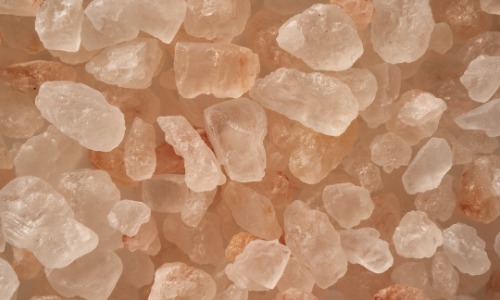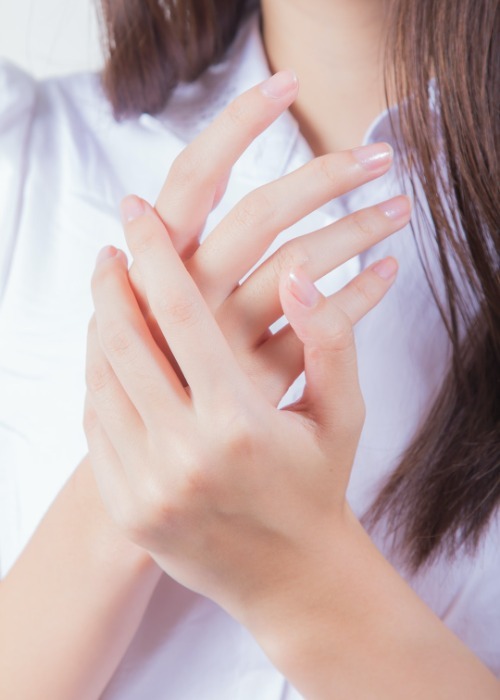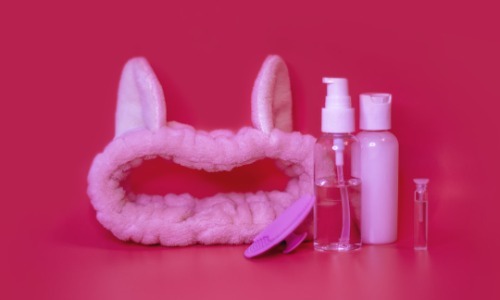
The Dos and Don’ts of Exfoliating for Sensitive Skin
With sensitive skin, exfoliating can make all the difference to how well your complexion looks and feels – but not any old scrub or product will do the trick.
Physical exfoliators employ abrasive particles to scrape away dead skin cells, while chemical exfoliants with alpha or beta hydroxy acids dissolve buildup on your bodys.
Don’t Overdo Exfoliating
Exfoliating is a vital step in any skincare regimen, particularly if you have sensitive skin. Exfoliation removes dead skin cells, promotes cell turnover and helps even out texture while also preventing clogged pores and keeping pores clear – but be careful in terms of frequency and intensity when exfoliating!
Overdoing it with exfoliation can result in redness, blotchiness and itching for anyone with sensitive skin, making the experience much less than pleasant. A general guideline suggests exfoliating once or twice every week for best results; however this will depend on your skin type and reaction to products used.
Physical exfoliants (such as scrubs) must also be handled carefully. Any chemical or mechanical exfoliators with rough ingredients that could irritate your delicate complexion should be avoided. Instead, opt for chemical exfoliants that contain gentle exfoliating acids (like glycolic or lactic acid) and natural ingredients like fruit enzymes. These ingredients effectively dissolve dead skin cells more gently than physical scrubbing would do.
For optimal results when exfoliating with sensitive skin, it is crucial that any exfoliant is free from common irritants like alcohol, fragrance and soaps; otherwise they could lead to redness and itchiness. Consult a dermatologist in order to select an exfoliation routine best tailored for you and your condition.
Once you’ve removed all that dead skin with exfoliating, it’s equally as essential to hydrate afterwards, especially if you have sensitive skin. Otherwise, the effects of exfoliation could cause your complexion to quickly dry out and lead to irritation. Try using a cleanser or exfoliant that contains hydrating ingredients like plant oils or hyaluronic acid in order to keep your complexion hydrated post-exfoliating.
Exfoliation should also be avoided prior to spending time outdoors as this could increase exposure to UV rays and leave your skin vulnerable to further sunburns. Only exfoliate areas of your body that require it – for instance feet or hands; exfoliating all at once could be too much for sensitive skin, and could even prove painful if exfoliation hits an unintended part.

Don’t Exfoliate Too Often
Exfoliation should typically occur once per week when using physical methods like brushes, loofahs or microdermabrasion. However, if your oily skin often breaks out with small blackheads and whiteheads or flaky patches on hands and feet then increasing frequency may be beneficial. Just ensure to do it no more frequently than every day or two as overexfoliation can irritate skin causing redness, dryness inflammation and scarring.
Exfoliation should be part of your skin care routine regardless of skin type, but especially those who struggle with blemishes or breakouts. Exfoliating can remove dead skin cells that build up over time and unclog pores – preventing impurities from building up and leading to breakouts. When selecting an exfoliator, always opt for one endorsed by professionals; try glycolic, lactic, or salicylic acids. For physical exfoliators look for pumice, poppy seeds or jojoba beads as these ingredients provide optimal results.
If you have sensitive skin, exfoliation should only take place every other week to avoid irritation. Exfoliating too often may cause redness and irritation as well as worsening acne flare-ups or worsening rosacea symptoms, reducing its natural barrier function even more and leaving your body vulnerable to environmental factors like UV rays.
Remember that pink and tingling after exfoliating is normal. However, if your skin turns red hours or days post-exfoliation, this indicates overdoing it and should be reduced accordingly. Additionally, be wary of over-exfoliating when waxed or suffering sunburn. Excessive exfoliating could make these conditions much worse.
As we age, our skin’s natural exfoliation process slows down. As such, exfoliation may need to occur less often compared with when we were younger. If in doubt about what to do or need advice based on your individual circumstances and needs it’s always wise to consult a dermatologist. They will offer specific recommendations based on skin type, concerns and current health status.
Don’t Exfoliate With Abrasives
Physical exfoliation can be an excellent way to remove dead skin cells, especially on the face and neck. Too vigorous a scrub could result in micro-abrasions that lead to irritation, redness, itching or breakouts. To minimize any risk associated with physical exfoliation, opt for gentle exfoliating methods or use one exclusively on body areas where skin is more resilient.
It is also crucial that you select an appropriate type of product for your skin type. Oily or combination skin types benefit more from chemical exfoliants containing alpha or beta hydroxy acids (AHA or BHA). AHAs can help reduce dead skin cell accumulation. BHAs penetrate deep into pores to dissolve blockages that lead to blackheads.
Physical exfoliants should never be used on particularly delicate skin. Chemical or enzymatic exfoliants work more gently by breaking down proteins that bind dead skin cells together. Thus, it is easier for the body to shed them without irritation.
Hydrate after each exfoliating session, especially when using more harsh exfoliating products. Doing this will hydrate and restore your skin’s protective barrier and aid its recovery.
Exfoliation should be performed carefully to promote a healthy complexion and keep skin looking younger and radiant. However try to avoid over-exfoliation with abrasives, which can strip it of natural oils. Which could then cause irritation and breach its barrier function.
Always read and follow the directions on your product as well as seek professional advice to determine what’s best for your skin type. In general, exfoliation should start small and slowly over time. Generally no more than twice or three times weekly for most skin types (but once every week may be necessary if your skin is particularly sensitive).
Don’t Exfoliate With Acids
If you suffer from breakouts, be wary that certain exfoliating acids (like glycolic and salicylic) may temporarily purge your skin. This occurs when the product you’re using starts dislodging dead skin cells and flushing clogged pores to the surface, which may cause redness, irritation and even blemishes. These symptoms usually subside once your body adjusts to using it. To determine the right frequency or intensity level of exfoliation for yourself it is always a good idea to consult an aesthetician or dermatologist. They can suggest the appropriate products and schedule that best fits you based on your own complexion needs.
Acid exfoliants have their place in skincare, but should be used sparingly and wisely. Overusing can cause irritation and breach the protective barrier layer, leading to long-term sensitivities issues in sensitive skin types. If this applies to you, aim for exfoliation once or twice weekly. Start slowly with acid exfoliants can help your complexion adjust before increasing their frequency over time.
An effective and gentle way to exfoliate your face is with non-comedogenic oils like jojoba or sunflower. Apply them to your skin along with cotton pads or washcloth. Massage the oil into your complexion to loosen dirt or makeup residue, before wiping with damp cloth for exfoliation. Although this method is gentle yet effective, be wary about touching delicate areas around eyes, lips, neck or decolletage. You do not want to aggravate an existing condition.
If you prefer physical exfoliants, natural ingredients like pumice or jojoba beads may work for you. Or in the shower use gentle scrubs like loofah to exfoliate. Just remember not to overdo it with hot water. If the water is too hot, it can strip your complexion of its essential oils and cause further irritation.
You will come to enjoy exfoliating if make sure you use an effective technique tailored specifically for your complexion and don’t overdo it. If you have sensitive skin, try exfoliating at night. Don’t forget to apply sunscreen in the morning as chemical exfoliants may increase sun sensitivity.



